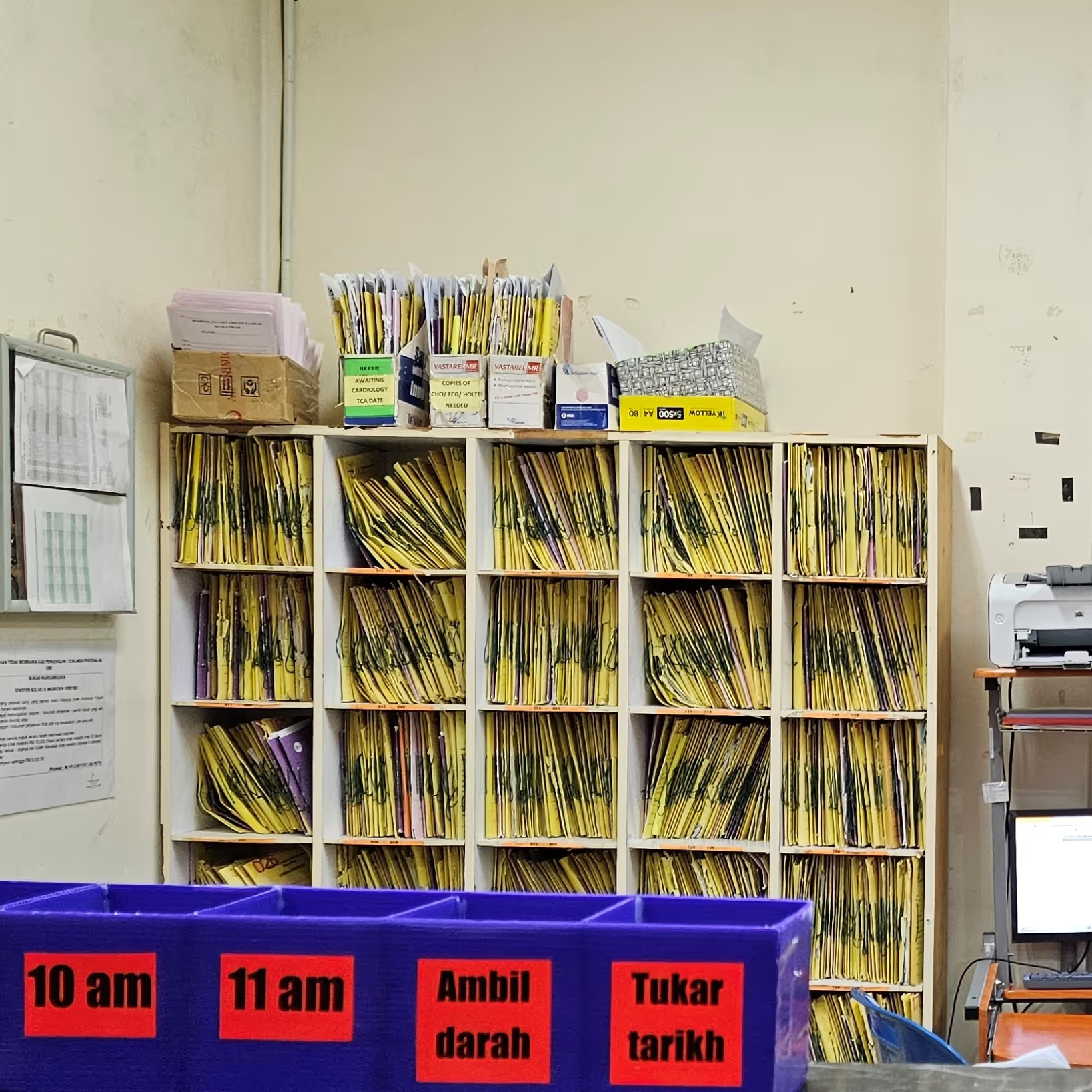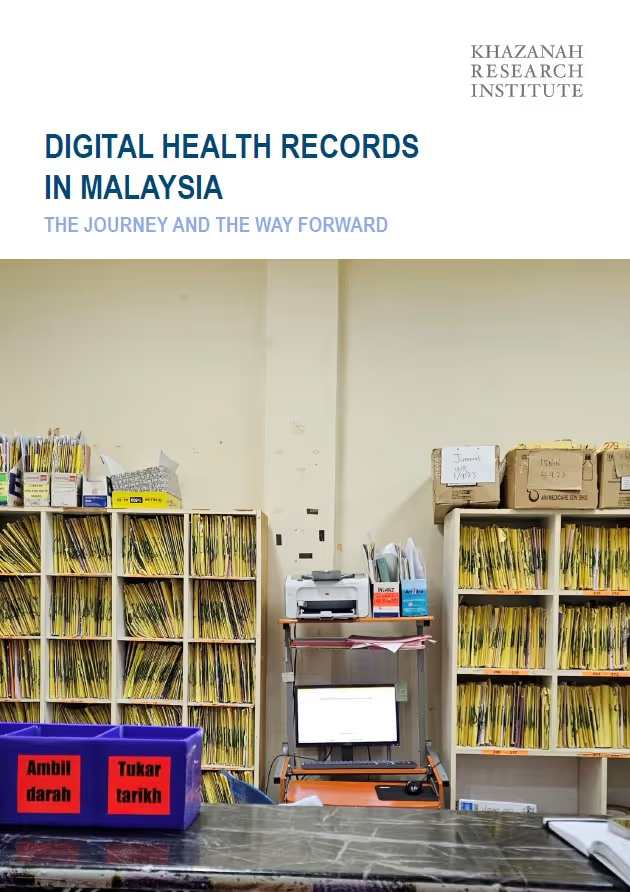
Malaysia’s public healthcare system serves more than 70% of the country’s population. A nationwide digital health records system across facilities will be necessary to ensure Malaysia is able to continue providing efficient and effective healthcare. However, as with other public services, adoption of digital technologies brings both promise and pitfalls.
Longstanding efforts to set up a national system have faced their share of challenges, but the intersection of the Covid-19 pandemic and widespread digital transformation presents the right time to renew these efforts. A pilot project of the National Electronic Medical Record Initiative (NEI) has set a goal of equipping all public healthcare facilities in Negeri Sembilan with a system that would allow sharing of patient records across the healthcare landscape. This would be followed by the integration of all public facilities nationwide
This research advocates for the establishment of a national digital health records system that promotes patient inclusion and empowerment, ensures protection of sensitive health data and allows for the collection of comprehensive health data throughout the lifetime of the patient.
Its recommendations are aligned with the government’s commitment under the 12th Malaysia Plan and Health White Paper to leverage technology to improve the healthcare sector, and more specifically, address the issue of fragmented health information systems.
The following are the four key policy recommendations put forth based on the research findings:
1. Update digital health-specific legislations since current provisions may not be comprehensive enough regarding how entities can collect, use and disclose health information.
2. Increase investment in foundational healthcare digitalisation which includes total life cycle costs of the system and existing infrastructure readiness.
3. Promote public awareness on the importance of patient access to health in order to support a healthcare system reform that shifts away from medical paternalism to patient autonomy.
4. Facilitate public-private healthcare systems integration by enforcing consistent data standards in addition to reviewing and updating such standards regularly to match global practices
These recommendations are not limited to the current rollout of the NEI. The principles underlying them are important and system-agnostic, applicable across the digital healthcare landscape.














.avif)